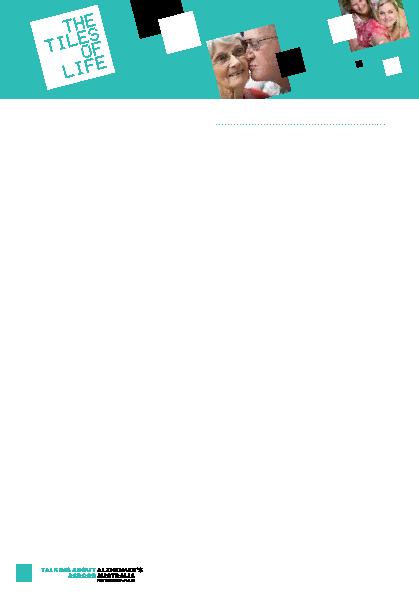
Australia is largely unknown. Determining the
prevalence of dementia is important in our
bid to close the gap between Indigenous and
non-Indigenous health whilst early diagnosis
and intervention of dementia is one of the
determinants of health.
the collaborative study between Alzheimer's
Australia Victoria, Victorian Indigenous
communities and the National Ageing
Research Institute to modify the Kimberly
Indigenous Cognitive Assessment tool for
use in Victorian Indigenous communities.
Phase one involved forming locally based
Indigenous focus groups and collating their
feedback on the tool. The tool will assist in the
early identification of cognitive impairment,
increase awareness of dementia in Indigenous
communities and highlight the needs of older
Indigenous people. We will demonstrate that
building capacity in Aboriginal health workers
and having collaborative partnerships with local
communities will underpin the efficacy of the
tool.
have flexibility when assessing their clients'
cognitive status, where current tools such as
the Mini Mental State Examination, have been
shown to have considerable cultural, education
and language bias which impairs their
application in the Indigenous communities.
Adrienne Withall, Christine Metusela,
Brian Draper
Dementia Collaborative Research Centre
Assessment and Better Care, University of
New South Wales
Onset Dementia study, this presentation
considers the role psychosocial life trauma
within the dementia experience, and its
implications for dementia research and care.
Past traumatic life events may fragment
one's sense of self or identity. This sense of
dis-integration can complicate the meaning-
making process surrounding a dementia
diagnosis, and of a future of living with
dementia. Although not part of the initial study
design, participants in the INSPIRED study,
including people with dementia and their
carers, spontaneously integrated narratives
of psychologically traumatic life experiences
into study interviews. Specifically, some
participants situated dementia causation,
symptoms and coping strategies within stories
of trauma, and sometimes, within a discourse
of transformation and resilience, in a process
to make meaning of their conditions.
number of people diagnosed with dementia
will increase, some of whom have experienced
significant traumatic events such as the
Vietnam War, refugee experiences, natural
disasters, and poverty. Attendance to past
trauma, the use of life-history narrative, and
a focus on strengths-based approaches may
reduce emotional and psychological distress in